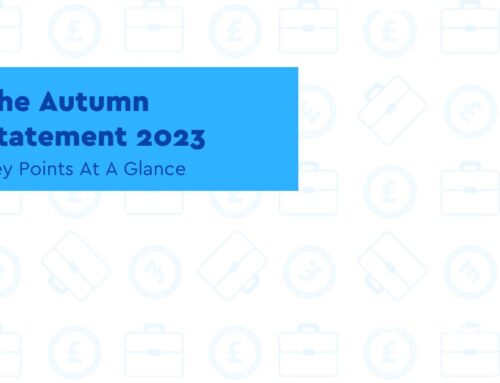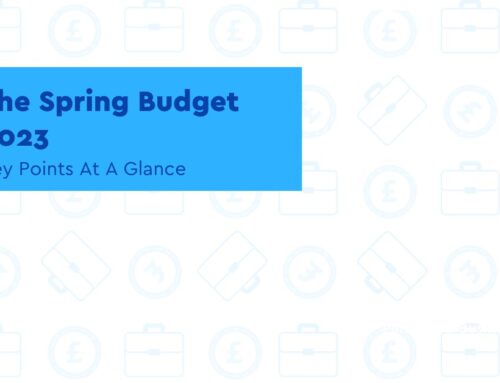Our round-up of the key business updates affecting you
October 23, 2020
Hello and welcome to our weekly wrap. This week we’ve rounded up the latest news that impacts you, including yesterday’s financial packages and support measures for businesses, employers and the self-employed, plus the latest UK-wide government grants, tax insights and business updates.
Sunak extends support to businesses in lower tiers

The Chancellor has also announced approved additional funding to support cash grants of up to £2,100 per month for businesses impacted by Tier 2 restrictions. This will primarily be for businesses in the hospitality, accommodation and leisure sector who may be adversely impacted by the restrictions in these high-alert level areas.
· For properties with a rateable value of £15,000 or under, grants of £934 per month.
· For properties with a rateable value of between £15,000-£51,000, grants of £1,400 per month.
· For properties with a rateable value of £51,000, grants of £2,100 per month
Increased support for employers announced through Job Support Scheme

Chancellor Rishi Sunak has announced he will be increasing support through the existing Job Support schemes, as employers will pay less and staff can work fewer hours before they qualify, while the taxpayer subsidy has been doubled.
Instead of a minimum requirement of paying 55% of wages for a third of hours, as announced last month at the launch of the Winter Economic Plan, employers will have to pay for a minimum of 20% of usual hours worked, and 5% of hours not worked.
The scheme will, as before, be open to all small businesses and larger businesses that can show an impact on revenues. Employers will continue to receive the £1,000 Job Retention Bonus.
The Chancellor said:
“I’ve always said that we must be ready to adapt our financial support as the situation evolves, and that is what we are doing today. These changes mean that our support will reach many more people and protect many more jobs.”
Grants doubled for self-employed

Under the initial extension to the Self-employment Income Support Scheme (SEISS), chancellor Rishi Sunak said the lump sum will cover three-months’ worth of profits (November to January) up to a total of £1,875.
But yesterday’s announcement essentially doubles the amount of profits which will be covered under the scheme, from 20% to 40%, up to £3,750.
Grants will be paid in two lump sum instalments each covering 3 months. The first grant will cover a three-month period from the start of November 2020 until the end of January 2021.
MPs urge HMRC to rethink Making Tax Digital rollout

MPs on the Public Accounts Committee (PAC) have stated that they are ‘not convinced’ by claims about the benefits that the Making Tax Digital scheme will provide.
The committee called for another assessment of the Making Tax Digital scheme, to consider whether the administrative burden it imposes on taxpayers is reasonable and affordable before proceeding with further national rollout.
HMRC’s primary objective for Making Tax Digital is to help reduce the tax gap attributable to SMEs caused by error and failure to take reasonable care.
The scheme has been implemented for VAT payments made by companies with an annual turnover of more than £85,000 since April 2019, and is due to be expanded to all businesses, regardless of size, from April 2022.
Self-employed businesses and landlords with annual business or property income above £10,000 will need to follow the rules for MTD for Income Tax from their next accounting period starting on or after April 6, 2023.
State pension set for inflation-busting rise in 2021/22

Retirees will see their state pensions increase by 2.5% next year under the triple-lock scheme.
Under the current rules, the new state pension rises by whichever is the highest of earnings growth, price inflation, or 2.5%.
The price inflation figure used is the consumer prices index figure for September, which is 0.5%, according to the Office for National Statistics.
As earnings growth figure for July was reported at -1%, state pensioners will benefit from a 2.5% increase – 2% above inflation.
People who receive the new state pension of £175.20 per week in 2020/21 will see their weekly benefits increase by £4.40 per week to £179.60 for 2021/22.
The Government was considering abandoning its pledge to the triple-lock in 2021/22 following unprecedented levels of spending to support people’s jobs during COVID-19
Due to the fast moving nature of the current Covid-19 pandemic, we are endeavouring to cover as much of the critical news as possible. If you are self-employed or run a business and need assistance and advice on how the recent announcments could make a difference to you or your business, feel free to get in touch with the experts at Morgan Reach. Our business growth experts at Morgan Reach will guide you through what support is available for you or your business as well as the latest news that may affect you.







